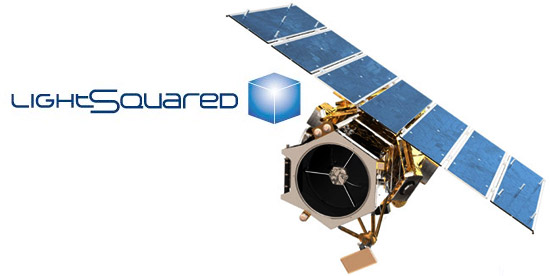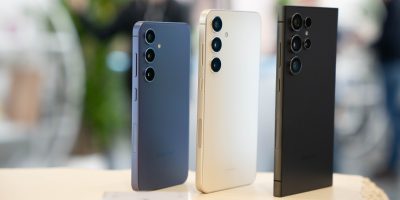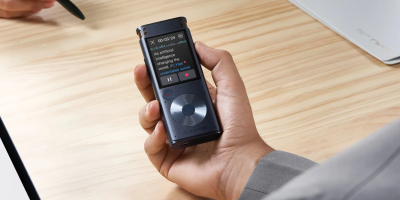LightSquared has been fighting what seems like an uphill battle from start to get their budding 4G LTE network off the ground. Their biggest hurdle? Getting the darn thing to stop interfering with government protected GPS bands. While, in the beginning, LightSquared was trying to convince the FCC that there was no interference (this was one of the terms required to get their network to gain approval), now the company is back peddling, issuing a statement calling out the FCC to change the way GPS receivers operate because, you know — although there’s no interference, if there was, it’s because of poorly designed GPS equipment. LightSquared said in a statement,
“If sensible standards were in place, the GPS industry would not be facing the current interference problems and consumers would benefit from a more efficient use of spectrum. Furthermore, the way would be clear for LightSquared to launch its new nationwide wireless broadband network funded by a $14 billion private investment in the nation’s broadband infrastructure.”
Now, I agree, something should be done about GPS receivers operating sloppily on L-band spectrum, but something tells me that would take a little more time than LightSquared is hoping to rush. When it comes to GPS manufacturers, LightSquared is asking the FCC to formally establish that they have no right to “interference protection” from LightSquared’s network. Something tells me this isn’t going to go over so well.
LightSquared is grasping at straws here, trying every trick in the book to get their LTE network up and running and remember — if they can’t get everything squared away by March, they could lose valuable funding from Sprint, one of their primary investors.
[GigaOM | Via Electronista]











I think though the spectrum issues need to be fixed, lightsquared also needs to look into other possibilities. They put sprint in a bind here, as sprint is promising LTE service this year. I’m sure if they put up a good fight they will eventually get their network up, but by then it’ll be too late
Well, Sprint is actually rolling out their own LTE network with or without LightSquared. The money they’re investing in LS could help them rollout it out quicker (sharing resources) but they’re definitely not relying soley on LS.
Good news for those of us on Sprint =)
LSQ is investing in Sprint… as Sprint would be deploying additional antenna’s and infrastructure for LSQ. As an earlier posted indicated this is a risk to the Sprint Vision project as they could have a funding gap to finish the deployment.
I still believe the GPS vendors are at fault as their receivers are to broad. The only potential problem which I have not heard anyone talk about is if it raises the noise floor. If the GPS vendors fixed their receivers to receive only within their band then the majority of these problems go away.
LSQ’s idea for having stricter limits on what GPS vendors can see is a great idea but it is going to take YEARS to implement. Even if the FCC came out tomorrow I would guess they would have a 2-5 year transition to the new standard and LSQ would be dead by then.
The GPS companies that violated the spectrum standards should compensate light squared for stepping into their bands.
The law set by FCC allows GPS companies to run on the spectrum they want. They are not breaking any laws, therefore, how could you say they should compensate a company? That is absurd to request someone to pay for something even though they ran within the given guidelines…
The GPS companies aren’t violating anything, that’s just Lightsquared spinning things. Any “bleed” into their frequencies improves accuracy, and it’s also paid for in licensing agreements to LS to do so – they are not encroaching. In order for these devices to work properly and be accurate, they also need to be highly sensitive, and high-powered transmissions can bleed into neighboring frequencies…. ever use an antenna on an analog TV, and as you spun and adjusted the antenna, you’d see a different channel than what you were tuned to behind the snow? That’s what would happen here… and the reason why the FCC put these spectrum chunks next to each other — to keep them away from high-powered transmissions.
The fact is they didn’t buy this spectrum from the FCC, and it didn’t need FCC approval on their purchase because of its purpose. They bought this MSS *satellite* spectrum from other satellite companies and only afterwards asked the FCC to have it re-purposed. Their broadcast license is for low-power transmissions, sat-to-ground with limited ground repeaters. They want it to be all ground-based, high powered.
They were tasked to prove they could create a high-power network that would not interfere with the low-powered GPS. They failed… and frankly, the military’s job, surveyors jobs, utility workers jobs, the airlines jobs… they’re all far more important than people getting a tiny chunk of LTE coverage. I want to know the backhoe outside my house isn’t going to hit the gas line and blow up because the GPS was 20 meters off. I want to know the plane overhead is going to land at the airport, and not in my driveway because the GPS was blacked out by Lightsquared. The FCC put these chunks of spectrum next to each other and designated them both low-power spectrum for a reason.
The real blame should go to the FCC and Light-squared for entertaining the notion, it’s not rocket science to know that a high power ground lte tower operating on frequencies that close to low powered gps receivers would cause problems for GPS, they never should have entertained the notion of re-purposing it for LTE.
Also Light-squared should have given up long ago, unless you can buy other spectrum somewhere else, your LTE network plans are dead in the water.
With all of that said, should the gps makers make better devices so that we lose this precious spectrum, yes of course, but it’s going to take a new rule from the FCC and years and years for critical systems to be upgraded to the newer equipment.
Sorry but Sprint isn’t investing any money in LS LS is investing money into sprint probably why sprint gave them an extension on the deadline LS needs Sprints Towers to do its own build out.
I’m so sick of light squared. Stop it lightsquared. Just stop it!